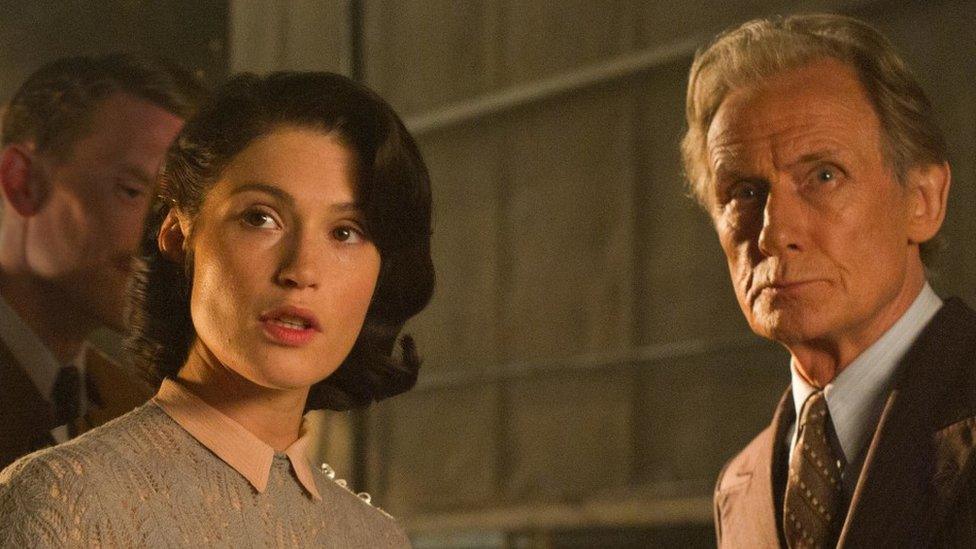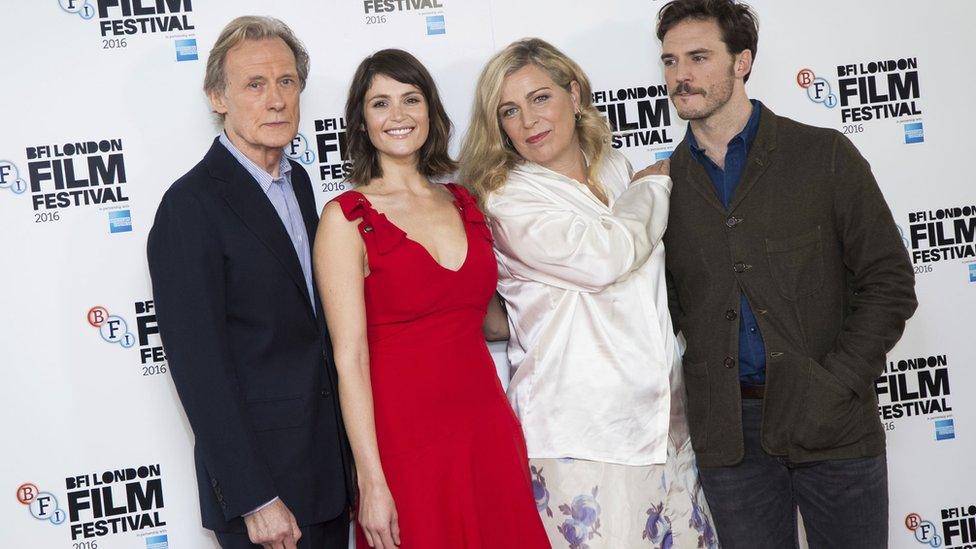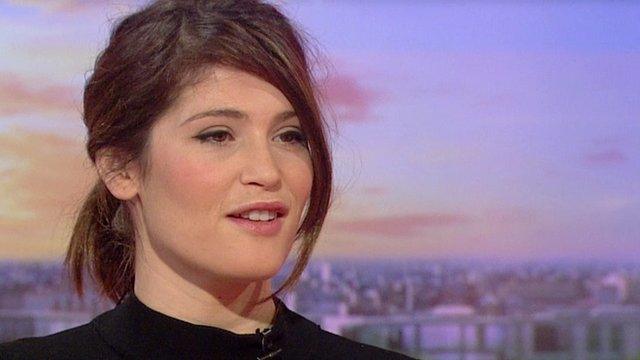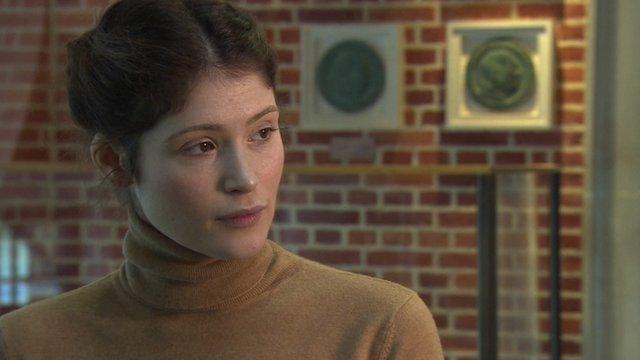Gemma Arterton on her 'feminist' WW2 role in Their Finest
- Published

Gemma Arterton says the character in her latest film is a feminist who "doesn't know it yet".
Lone Scherfig's period comedic drama Their Finest tells the story of a group of filmmakers making a film to boost morale during World War Two.
Arterton plays Catrin Cole, a screenwriter hired to bring a female perspective to war films produced by the British Ministry of Information.
The film had its gala screening the BFI London Film Festival on Thursday night.

Arterton plays a screenwriter during WW2
The film shows how she has to put up with a lower salary than her male counterparts and has to fight pressure to dilute the female roles in her screenplay.
In the film, the female dialogue is referred to as "slop" - a term used in some film-making circles at the time.
"It's obviously sexist," Arterton said ahead of the screening, "but funnily enough for Catrin I don't think she's aware of it. I think at that time it was just kind of accepted."
She added: "What I like about Catrin is that she is a feminist and she doesn't know it yet."
Arterton stars in the film alongside Bill Nighy, who plays a fading movie actor, and Hunger Games star Sam Claflin as Catrin's colleague at the ministry.

Their Finest: Bill Nighy, Gemma Arterton, Lone Scherfig and Sam Claflin
Their Finest is Danish film-maker Scherfig's fifth film set in the UK. Her other films include An Education and The Riot Club.
"I never felt this that film was primarily a feminist film," Scherfig told the BBC.
"The whole story of a woman finding out what she can do and gaining respect for it is definitely the main plot but the whole package - about London and the film industry - is what gives the film its depth and complexity."
Producer Stephen Woolley said he had loved making a film about a time when making films was so important.
"When they made films in the 1940s it was a matter of life and death. They had no idea if they'd have a film set or any actors the next day, or if the Germans had invaded...
"They look a bit corny now, but those films were so important. Thirty million people a week used to go to the cinema. That's never going to happen again.
"This was the golden age of filmmaking and film-going. People needed those movies."

Follow us on Twitter @BBCNewsEnts, external, on Instagram, external, or if you have a story suggestion email entertainment.news@bbc.co.uk, external.
- Published23 September 2016

- Published20 January 2015

- Published15 January 2014
